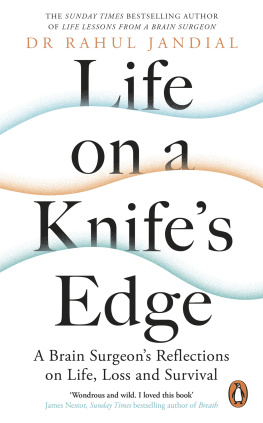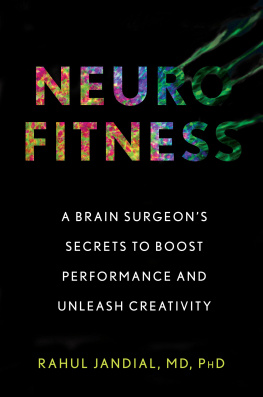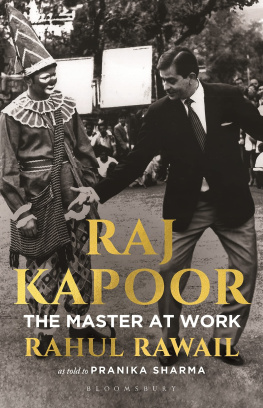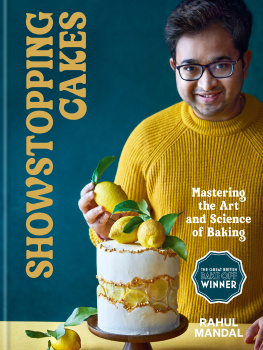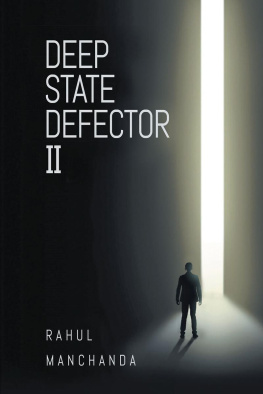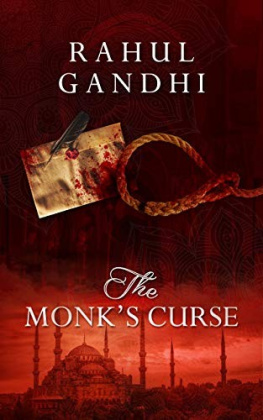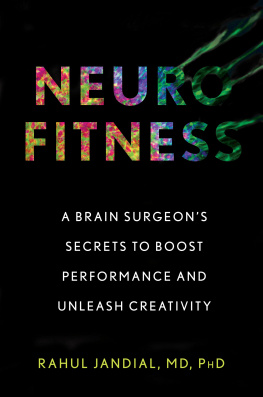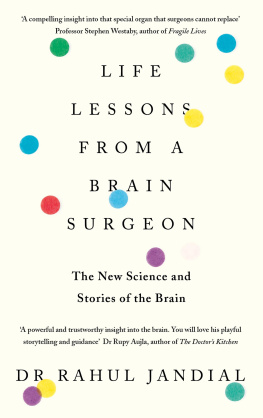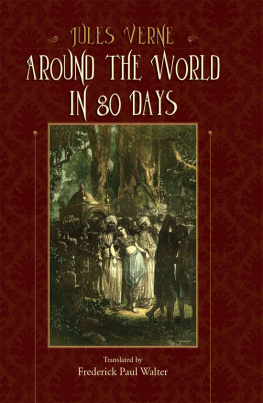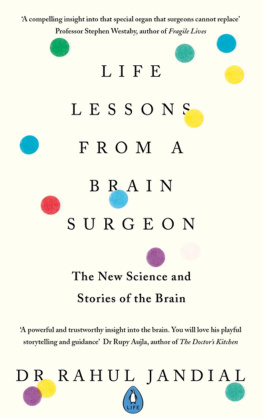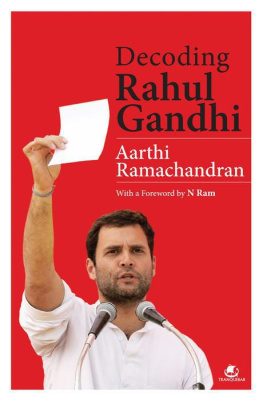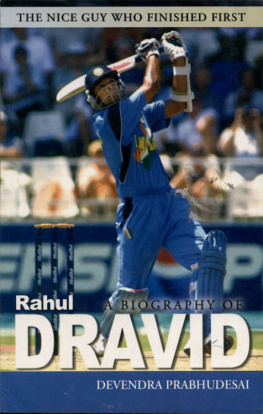Rahul Jandial
LIFE ON A KNIFES EDGE
A Brain Surgeons Reflections on Life, Loss and Survival

PENGUIN BOOKS
UK | USA | Canada | Ireland | Australia
New Zealand | India | South Africa
Penguin Books is part of the Penguin Random House group of companies whose addresses can be found at global.penguinrandomhouse.com.

First published by Penguin Life in 2021
Copyright Rahul Jandial, 2021
The moral right of the author has been asserted
ISBN: 978-0-241-46185-3
This ebook is copyright material and must not be copied, reproduced, transferred, distributed, leased, licensed or publicly performed or used in any way except as specifically permitted in writing by the publishers, as allowed under the terms and conditions under which it was purchased or as strictly permitted by applicable copyright law. Any unauthorized distribution or use of this text may be a direct infringement of the authors and publishers rights and those responsible may be liable in law accordingly.
For my sons
Zain, Kai, Ronak
This book is substantially a work of non-fiction based on the life, experiences and recollections of Dr Rahul Jandial. To maintain patient confidentiality and to protect the privacy of individuals, names of people and identifying details have been changed and certain situations and individuals may have been merged to further protect identities. Any remaining similarities are purely coincidental.
Preface
When I began writing this book, my goal was to pull back the blue surgical drapes and give an insiders view of brain surgery. My intention was to reveal what really happens after the patients are lying on the table in the operating theatre, their brains exposed and glistening. And what happens when they wake up and come to terms with their altered lives.
The resulting book is something quite different. I realized I could not write honestly about my experiences in surgery without pulling back the curtain on myself, to expose myself in the same level of detail and depth as my patients.
I am a brain cancer surgeon. Im also a neurobiologist leading research that will, I hope, one day make my operating skills unnecessary through advancements in science. But, for now, I remove cancer from people. A lot. Im good at what I do, but the very nature of my work means I often fail.
I have extended thousands of lives. I have outflanked death on the operating table many times. I have given people those extra months of life so they can see their children graduate. I have also inflicted terrible pain that could have been avoided. I have made mistakes that have haunted me for years. I have made decisions that have saved lives. Ive made others Im proud of that pushed the boundaries of professional ethics and could have ended my career.
I have never seen myself as above the law, but when I was taking care of patients with severe brain injuries I was often placed in impossible scenarios that very few could ever imagine. There are compromises that have to be made, awful, unavoidable choices that surgeons and patients sometimes have to face.
Surgeons have the reputation of being more interested in the procedure than the person. I never saw it that way. For me, surgery was never about human anatomy but about human nature. I am indebted to the craft of surgery, a practice that lays bare both my patient and me, placing us both on a knifes edge. It can be a lonely place and there are rarely any easy answers.
The questions that we face in surgery are the biggest ones conceivable, reaching deep into the heart of what it is to be sentient, aware an attempt to investigate the wonder of the human mind. And what deeper connection can there be between two humans than one permitting the other to cut them open and work inside them? And in my particular specialty, the patient may even be conscious while I perform the brain surgery. One mind inside another.
The journeys I have been on with my patients have been a masterclass in the fragility, courage and beauty of humanity. And to care for the suffering, I have had to bring my own suffering to the fore. What I share in the following pages is my personal foray into the ethics and struggles that my patients and I have experienced.
In this book I share the lessons and insights from the trenches of my life and my work, everything my patients have taught me about our remarkable brains and the precious life we have. I am forever indebted to them. My patients have taught me grace, courage and true wisdom out of their most trying circumstances, and have made me think differently about life, loss and survival. In the pages that follow, I share what I have learned.

1.
Trauma
I started to shake. What felt like an early inkling of an earthquake was actually a helicopter touching down on the roof. That meant I had about sixty seconds to get into position in the trauma bay. It was my first year in surgical training. A woman hit by stray gunfire had been airlifted from the field. When she was rushed through the doors, her blood pressure collapsed and the falling numbers pulsing on the monitor showed just how close to death she was. The lead trauma surgeon sliced between the womans left fourth and fifth ribs and told me to literally pump her heart for her. My left hand barely fitted between the two bones; it was as if I was reaching through a window that was slightly ajar. I was wrist deep and felt the stretched ribs bow back snugly on my wrist. And when I turned my hand to grab the base of the slippery heart I could feel her ribs splinter and crack to accommodate me.
To get to the operating theatre, we had to navigate the hallways. To be able to continue clenching her heart, I had to jump on to the gurney. We were rushed so hard through the sharp turns that sometimes I was not only squeezing her heart, I had to hold on to it to keep from losing my grip. I could feel her warm blood on my forearm. The muscles in my hand cramped as I held her heart in my palm. Squeezing. Then releasing. An open cardiac massage was a rare surgical manoeuvre, performed when a patient has lost more than half their blood and the heart fails to pump; there is too little to fill it, so it merely flutters.
When we reached the operating room, two surgeons were waiting. Without a word, the surgeon pushed me away from the patient with his elbow. I stumbled backwards and my hand slid out of her, releasing her heart. That was his intention. Then he and the other surgeon took over. They incised, dissected and found the sheared arteries in her chest and abdomen while two anaesthesiologists plunged blood and medicines into her veins.
In four hours of orchestrated chaos, they worked frenetically but in unison, and the patient lived. It was the most powerful thing I had ever witnessed, a scene that is unimaginable to the uninitiated. What made it even more incredible was how unlikely it was I was there in the first place. Six years earlier, Id been a college dropout. At that moment I felt deeply proud of the craft I had entered, and the word surgery took on new depth. I had seen surgeons perform together, and at the highest level.
I wanted more.
Today, Im a brain surgeon specializing in removing cancer from peoples bodies. Now in my forties, Ive met more than fifteen thousand patients and operated on more than four thousand. Surgery can inflict damage on the most human aspects of ourselves but also reveal our deepest humanity.

